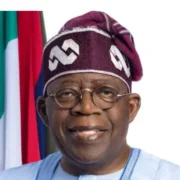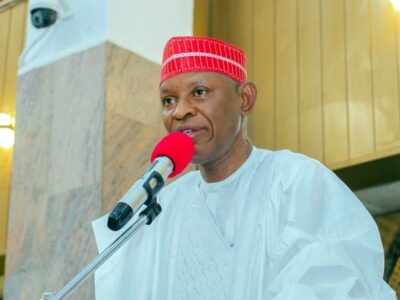Since the proposal to eliminate alcoholic drinks sold in sachets and small bottles first surfaced in 2018, the policy has remained one of Nigeria’s most divisive public health debates. That year, widespread objections forced the Federal Ministry of Health, the Federal Competition and Consumer Protection Commission (FCCPC), and the National Agency for Food and Drug Administration and Control (NAFDAC) to sit with industry players and sign a five-year MoU to phase out the products gradually.
Despite multiple postponements, the controversy never died. Manufacturers were accused of heavy lobbying to stall or bury the policy, but while they managed to delay it, they could not stop it. Now, with renewed backing from the Federal Government and the Senate, the ban is set to take full effect.
On Tuesday, November 5, the Senate ordered NAFDAC not to extend the December 31, 2025 deadline for enforcing the halt on the production of alcohol in sachets and bottles below 200ml. The directive followed a motion sponsored by Senator Asuquo Ekpenyong, who described the policy as consistent with global standards and necessary for reducing alcohol-related harm.
Ekpenyong reminded lawmakers that the government had already granted manufacturers a one-year moratorium in 2024 to clear existing stock and retool their factories. He warned that further extensions would undermine regulatory authority and worsen what he called an “escalating public health crisis.”
He cited addiction, impaired cognitive development among youths, domestic violence, school dropouts and road accidents—especially involving commercial drivers—as consequences of the easy availability of cheap, high-strength alcohol.
Senators who spoke supported the motion. Senator Anthony Ani described sachet alcohol as a “growing social menace” that must be tackled urgently. Senate President Godswill Akpabio ruled that NAFDAC must enforce the ban fully by December 2025, stressing that any further delay would sabotage anti-substance abuse efforts.
Following the resolution, NAFDAC Director-General, Prof. Mojisola Adeyeye, reaffirmed on November 11 that enforcement would begin next month. She described sachet alcohol as a “public health menace,” adding that its affordability and concealability had fuelled addiction among minors and commercial drivers.
According to NAFDAC, only spirit drinks packaged in sachets and small bottles below 200ml are affected. The agency insisted that the ban aligns with Nigeria’s commitments under the WHO Global Strategy to Reduce the Harmful Use of Alcohol.
But Not Everyone Agrees
While government and public health advocates are firm on the dangers, manufacturers, wholesalers and retailers say the ban threatens their businesses and the livelihoods of ordinary Nigerians.
Mrs. Bukola Jaiyeloba, a retailer, said the policy ignores the realities of low-income citizens.
“They know not everyone can afford a big bottle,” she argued. “These small drinks help the common man relax. Taking them away will push people toward drugs, which is worse.”
She warned that many small businesses would collapse if the ban proceeds.
At Mile 2 in Lagos, where early-morning and after-work drinkers gather, consumers accused the government of “chasing shadows.”
One consumer questioned why authorities were targeting affordable alcoholic drinks while hard drugs were openly sold and used across the city.
“People smoke marijuana on the streets in broad daylight and nothing happens,” he said. “But they want to take away the only thing many young Nigerians use to stay happy.”
He added that drinkers would find ways to adapt—such as pooling money to buy larger bottles and sharing.
A Nation Split
The government maintains that sachet alcohol fuels addiction and health problems ranging from high blood pressure to kidney failure. Industry players insist the ban punishes the poor and threatens thousands of jobs. Consumers say authorities are ignoring more pressing issues.
With the December 2025 deadline approaching, the tension between public health priorities and economic survival is growing—setting the stage for one of Nigeria’s most contentious policy showdowns in recent years.




















Comments